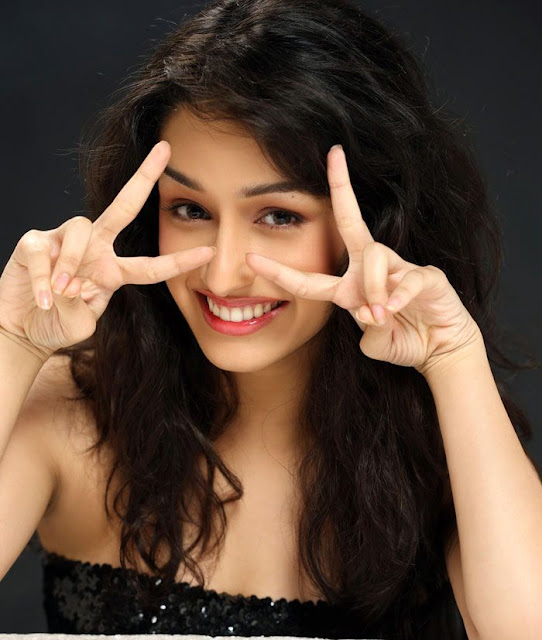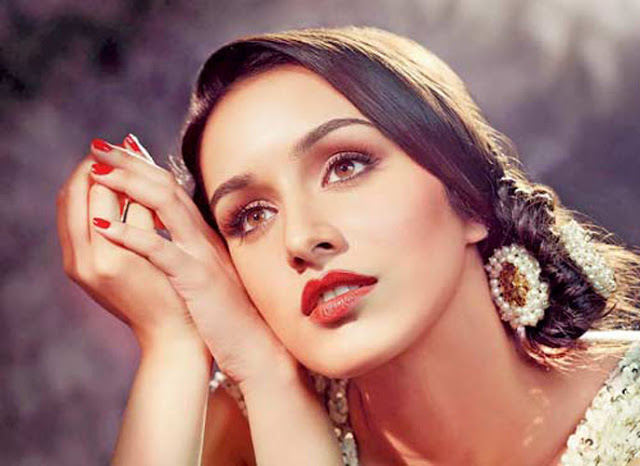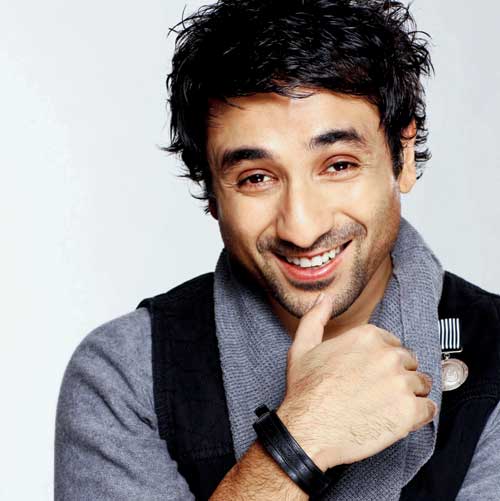“I love the fact that I’m again a
newcomer”
By Ankita R Kanabar
(This interview has been published in the May 18, 2013 issue of Super Cinema)
(This interview has been published in the May 18, 2013 issue of Super Cinema)
Being a superstar down south, with
70-80 films and then starting from scratch in Hindi cinema, yet displaying a
child-like glee while at it, is probably what makes Prithviraj what he is
today. The man has done such notable films, and the confidence he exudes is a
testament of that. Prithviraj though, has no qualms about being called a
newcomer. Perhaps, if anything, beginning all over again and exploring various
roles gives him an adrenaline rush. While his debut vehicle, ‘Aiyyaa’, failed
to generate box office numbers, he says he kind of anticipated it. Having said
that, one cannot deny that Prithviraj has got his share of accolades from the
audience and the industry; not to forget women seem in awe of him. But ask him
how he’s dealing with the female attention and he turns shy. His second film,
‘Aurangzeb’ just saw a release, and while he’s completely kicked about this
one, we get talking about several other things. There’s a sense of calm in his
husky voice, which is appealing enough for you to know that he must be singing,
even if you weren’t aware that he sings. Sipping on some coffee, Prithviraj
opens up about shedding his stardom to start afresh as a debutant, his journey and
all what comes with being an actor. I also discover few other things about him,
during the rendezvous:
You obviously must have got offers for
Hindi films before ‘Aiyyaa’ as well?
I did get offers from Hindi, but I was not really looking for work, I still am
not someone who’s looking for work. The kind of offers that came my way didn’t
excite me. The thing about ‘Aiyyaa’ was that I thought it was something out of
the way, and not ‘very done before’ sorts. I knew that there was a possibility
that people might not understand what the film was about or they may not relate
to that brand of humour. But I knew for sure, that it’s not going to be
ignored. Either people will love it, or hate it, but it definitely wouldn’t be
ignored. So, I did the film and I’m pretty okay with the fact that it turned out
that people didn’t relate to the film, and they didn’t quite get the brand of
humour which the film had. But like I said, that’s okay. We always knew that
there was a chance of that happening. As a debutant, I can’t be complaining
because I seem to have got noticed, you know a lot of people told me that they
liked me in the film, a lot of filmmakers came forward and wanted to make films
with me, and well, I’m already talking to you about my next film, so I can’t
complain. I guess it did work for me, otherwise I wouldn’t be here.
Being someone who’s a superstar down
south with 70-80 films, and then to start as a newcomer in Hindi films. How do
you manage that, without bringing in the starry baggage?
Yes but for me that is the most exciting part, that I come here and I’m on a clean slate. People look at me as a newcomer. When you see ‘Aurangzeb’, you don’t know that it’s my seventeenth cop film so that’s really exciting. How many people get the opportunity of debuting with 80 films behind them? That’s the most exciting part. But I also understand what you’re trying to say, because I have friends down south who have done films in Hindi, who tell me, ‘you know I really don’t want to be going through the grind again, we’ve been through that, now we are where we are today. Why should we start all over again?’, but, for me that’s very exciting. I love the fact that I’m again a newcomer. Every film I do down south now, I do it because of who I am, and every film I do in Hindi, I do it because of how good I am. Because, people here don’t really know how I am, or what I can do. So, that’s a big kick. It’s a big adrenaline rush to realise that even today on a level playing ground, you’re good enough, so that’s nice.
Yes but for me that is the most exciting part, that I come here and I’m on a clean slate. People look at me as a newcomer. When you see ‘Aurangzeb’, you don’t know that it’s my seventeenth cop film so that’s really exciting. How many people get the opportunity of debuting with 80 films behind them? That’s the most exciting part. But I also understand what you’re trying to say, because I have friends down south who have done films in Hindi, who tell me, ‘you know I really don’t want to be going through the grind again, we’ve been through that, now we are where we are today. Why should we start all over again?’, but, for me that’s very exciting. I love the fact that I’m again a newcomer. Every film I do down south now, I do it because of who I am, and every film I do in Hindi, I do it because of how good I am. Because, people here don’t really know how I am, or what I can do. So, that’s a big kick. It’s a big adrenaline rush to realise that even today on a level playing ground, you’re good enough, so that’s nice.
So, you’re the kind of person who just
wants to re-invent himself every now and then, just for the fun of it?
For me it seems like the most natural thing that someone would do. What can I do down south now? Yes, I can hope for different kind of films or great out-of-the-way characters, but how much more can I grow? I can keep doing films, keep doing good films, giving hits or flops or whatever, the excitement for me is right now here. Because, you know, right now, I don’t know where I’m going to be or what I’ll become, it’s just one very unpredictable playing field for me. That’s very exciting. That really draws me. It’s like moments before the roller-coaster kicks off.
For me it seems like the most natural thing that someone would do. What can I do down south now? Yes, I can hope for different kind of films or great out-of-the-way characters, but how much more can I grow? I can keep doing films, keep doing good films, giving hits or flops or whatever, the excitement for me is right now here. Because, you know, right now, I don’t know where I’m going to be or what I’ll become, it’s just one very unpredictable playing field for me. That’s very exciting. That really draws me. It’s like moments before the roller-coaster kicks off.
 Apart from being an actor, you sing
and also produce films. Producing of course, might be demanding a lot of your
time too.
Apart from being an actor, you sing
and also produce films. Producing of course, might be demanding a lot of your
time too. As far as producing is concerned, once you have your company and system in place, it’s not a very complicated affair. A film produces itself, once you have a company and network in place, which I do have now. I really don’t need to be present there to physically produce a film. We have systems in place where the films will fund for themselves, I just have to be the intermediary. So, that will happen, and that’s what I want to do from now on. Down south, I don’t want to be doing more than two films a year, and then maybe produce two films where I’m not involved as an actor. The rest of the time I want to see what I can try and do in Hindi. I want to invest my time in Hindi cinema. Now does Hindi cinema need that much time from me, is another question, which I hopefully should discover very soon. But as I said, I can’t be complaining. I’m what, a year old in the Hindi Film Industry, and I have two films already, so what better could I ask for?
That explains why you aren’t complaining,
despite shuffling between both the industries, and doing ten other things….
I take a break once in a while. Every year, for a month, I take off. End of the
year, usually I take off. When I was dating, I used to travel with my
girlfriend, and now with my wife. And it happens to be the same girl (laughs).
Then for me, actually the whole thing of relax and unwind, I don’t understand,
because for me, making a film is quite relaxing. I’m quite chilled out on sets.
For me, making a film is not really stressful. Plus, whenever I’m anywhere near
Kerela, I make it a point to go and spend some time at home, because I’ve moved
into this new house and I’ve hardly got any time to spend there. So, right now,
I’m really looking forward to spending time at home, and enjoy the new house.
Like every other actor, you might have
also had your share of ups and downs…
I decided I wanted to
be an actor only after having done five or six films. Till then I was just
fighting. I was studying in Australia so I wanted to go back there and work. I
used to tell myself, ‘Just this one last film, after that I’m going back.’ After
about 4-5 films, I realised that this is what I really want to do. There’s no
going back, this is it now. Then I started enjoying myself, and this whole process
of filmmaking and. It’s not been a smooth ride. I’ve always maintained that I’m
somebody who didn’t have to go through a struggle to get my first film. My
first film came my way. So, all the struggle I had to undergo was after I got
my first film. I got my first film, purely because of my surname. But, your
surname will only get you your first film. From there on, it’s purely based on
how good you are. So from there on, I’ve faced a lot of glitches. I had phases
in my career where four films back-to-back have not worked. Then, I’ve had
great phases, like right now, I’m sitting on four consecutive hits. All of that
happens to actors. There’s no full-proof way to make sure that you only do
films that work. If that was the case then no actor would have been a part of
an unsuccessful film ever.
Any plans of singing for a Hindi film
or producing a Hindi film?
Singing will completely depend on music directors and producers. And producing,
I’m yet not rich enough to be producing a Hindi film.
Have you gotten used to all the female
attention, post ‘Aiyyaa’? Women seem smitten by the intimidating, mysterious
Prithviraj, as seen in the film. How much are you like him?
(Laughs) I don’t know about the female attention because I don’t really spend that much time in Mumbai. But I’m nothing like Surya of ‘Aiyyaa’, or Arya of ‘Aurangzeb’. I’m not that kind of a guy. I’m not really mysterious or mystic. I’m actually quite a boringly normal guy. In fact, if anything, I’m a little bit of an anti-social, because I’m not someone who will go out and party. I’m an introvert. If there’s anything about me which is worth mentioning, it’s just that. Apart from that, I’m just like anything other 30-year-old.
(Laughs) I don’t know about the female attention because I don’t really spend that much time in Mumbai. But I’m nothing like Surya of ‘Aiyyaa’, or Arya of ‘Aurangzeb’. I’m not that kind of a guy. I’m not really mysterious or mystic. I’m actually quite a boringly normal guy. In fact, if anything, I’m a little bit of an anti-social, because I’m not someone who will go out and party. I’m an introvert. If there’s anything about me which is worth mentioning, it’s just that. Apart from that, I’m just like anything other 30-year-old.
Having done so many films, which genre
do you enjoy the most?
I’ve done everything – from action to comedy to romcoms to love stories, everything. I find, these days, if it’s not a film that’s worthy of having an actor in it, then I find it boring because unfortunately, you’ve been through that so many times. Starting your film, shooting it, finishing it, dubbing it, promoting it, you’ve been through it so many times that after a point, if it’s not a film that’s genuinely exciting, you find it a little boring. So, it doesn’t matter what the film is about, but it should be exciting for me.
I’ve done everything – from action to comedy to romcoms to love stories, everything. I find, these days, if it’s not a film that’s worthy of having an actor in it, then I find it boring because unfortunately, you’ve been through that so many times. Starting your film, shooting it, finishing it, dubbing it, promoting it, you’ve been through it so many times that after a point, if it’s not a film that’s genuinely exciting, you find it a little boring. So, it doesn’t matter what the film is about, but it should be exciting for me.
And does your approach differ from
character to character, or it remains the same?
I really can’t categorise acting. For me, it’s just a character. The character in ‘Aiyyaa’ didn’t speak. So, the biggest compliment for me came when people came and told me, we really wanted to hear you speak more. Because the whole point was to make Meenakshi feel that. The girl had to feel, ‘I wish he spoke more, I wish he spoke to me.’ So if people felt that in the theatre too, then obviously the character has worked. It rather remain that way, than people saying ‘Oh we wish there was less of you.’ For me, when I get a script, I really comprehend the script, I learn the script, but I stop there. I don’t really construct a methodology where I think this is how I would do it. I think the way you try and understand the script, somewhere in your subconscious level, you already construct a behavioral pattern, which you don’t realise. Then you end up on the set, the film starts, you just fall into place. And obviously, if you’ve not gotten it right, there’s a director who would tell you, it’s not right. For me, the idea is to make it remain instinctive.
I really can’t categorise acting. For me, it’s just a character. The character in ‘Aiyyaa’ didn’t speak. So, the biggest compliment for me came when people came and told me, we really wanted to hear you speak more. Because the whole point was to make Meenakshi feel that. The girl had to feel, ‘I wish he spoke more, I wish he spoke to me.’ So if people felt that in the theatre too, then obviously the character has worked. It rather remain that way, than people saying ‘Oh we wish there was less of you.’ For me, when I get a script, I really comprehend the script, I learn the script, but I stop there. I don’t really construct a methodology where I think this is how I would do it. I think the way you try and understand the script, somewhere in your subconscious level, you already construct a behavioral pattern, which you don’t realise. Then you end up on the set, the film starts, you just fall into place. And obviously, if you’ve not gotten it right, there’s a director who would tell you, it’s not right. For me, the idea is to make it remain instinctive.
Any other Hindi films that you’ve signed?
There’s nothing concrete as of now. I’ve already heard 3-4 scripts out of which
in the next one month, I should say yes to maybe one of them.





.jpg)


.jpg)